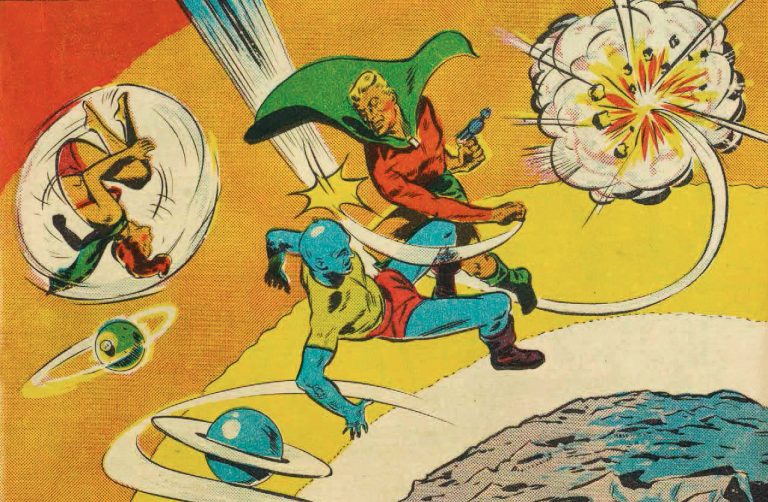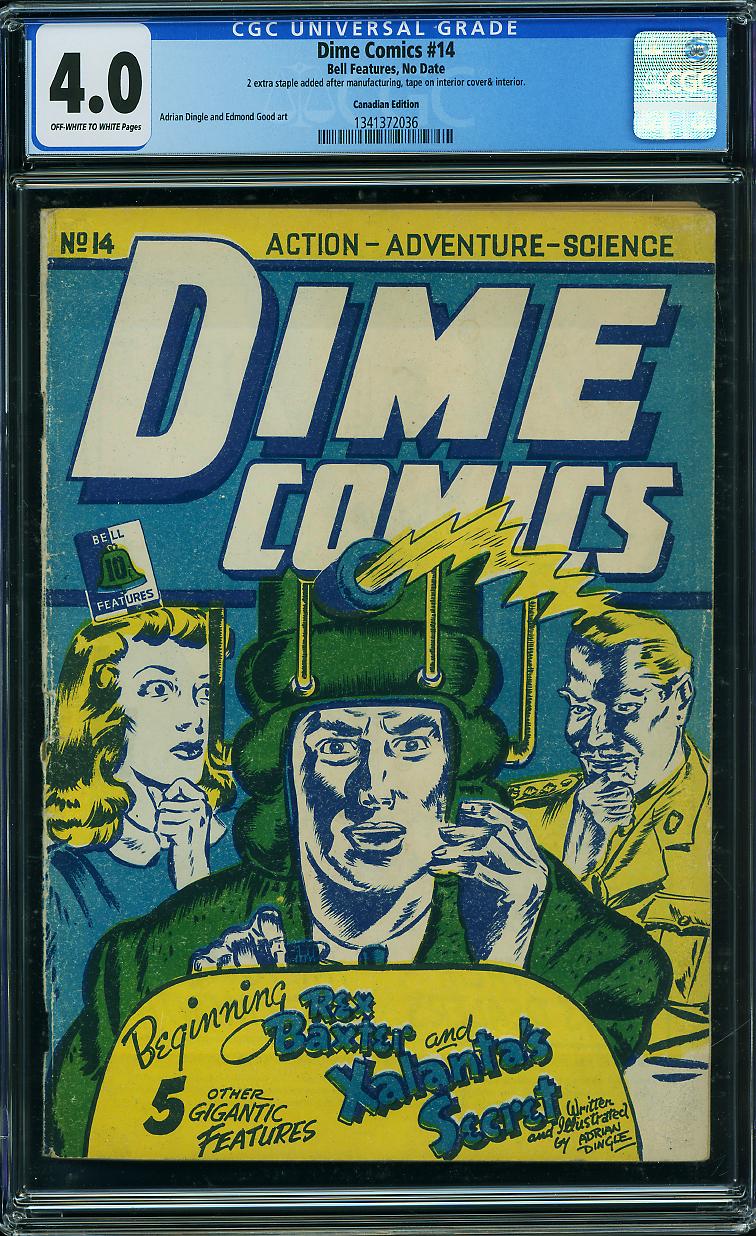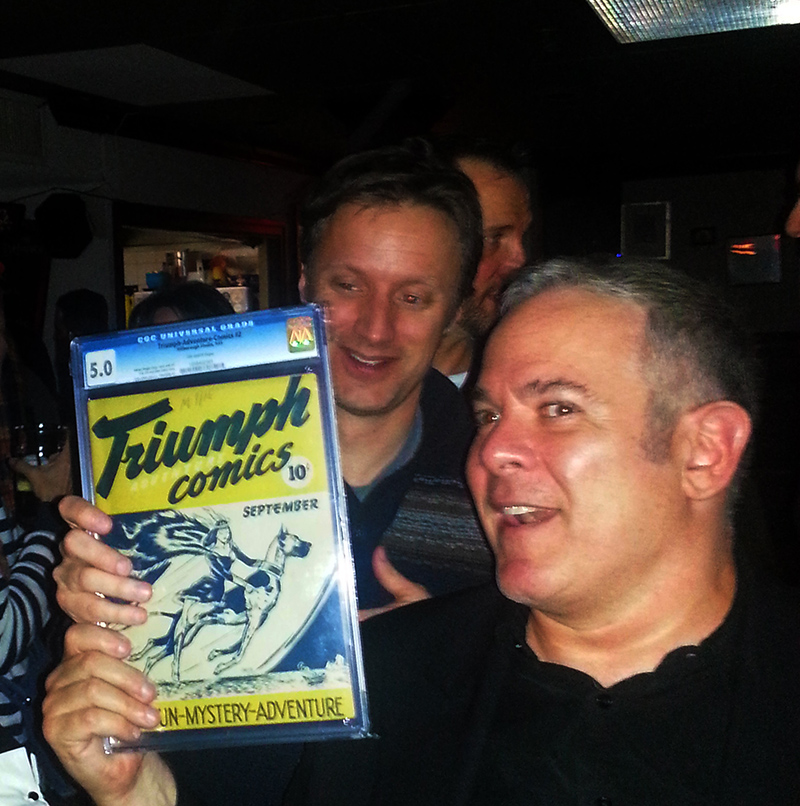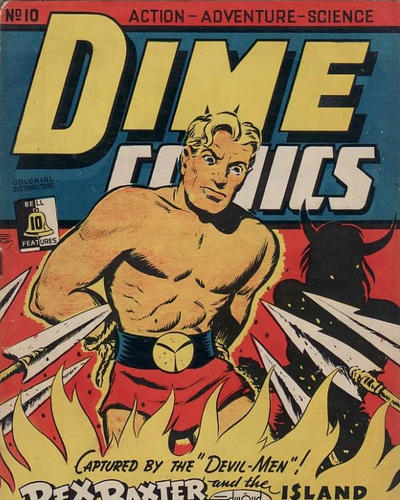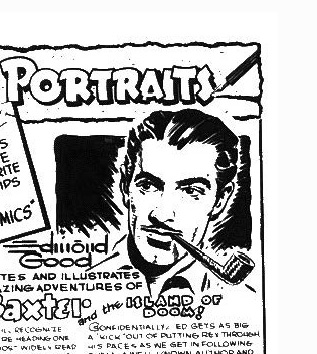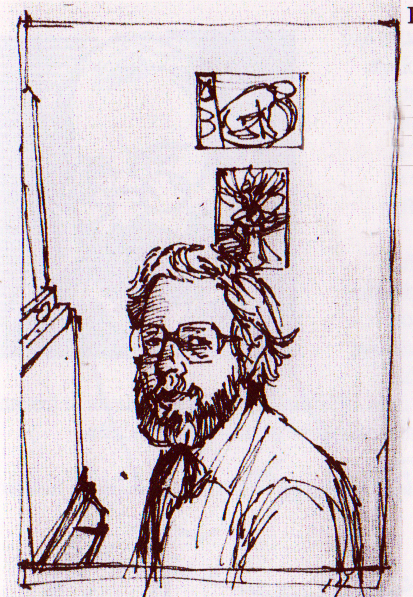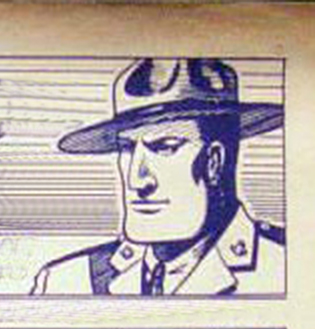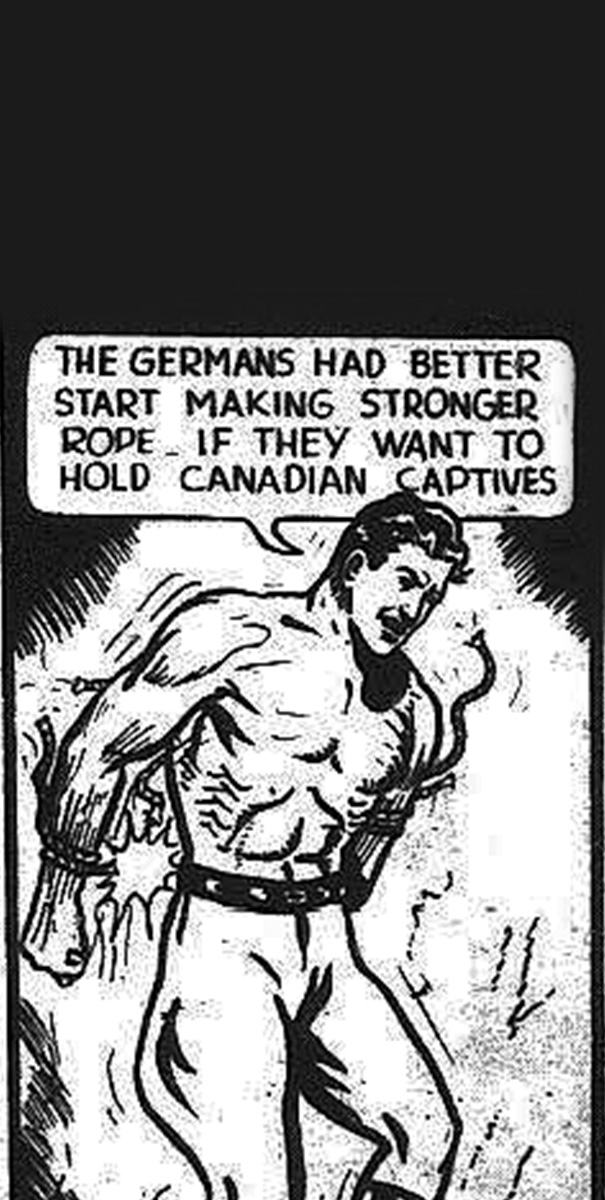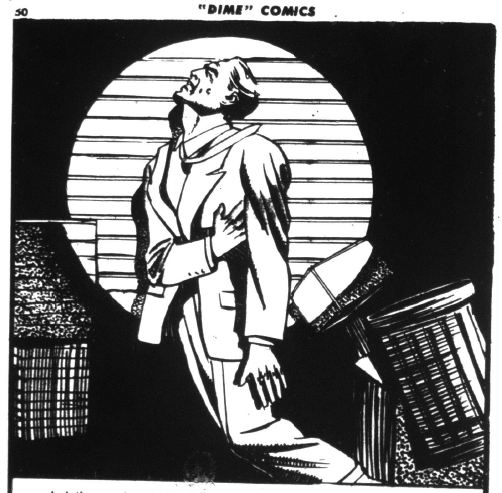For this post let’s stick to the Bell heroes as they appeared on the cover of six of the seven titles; we’ve got to make an exception of The Funny Comics because it featured one central character, Dizzy Don, who got every cover appearance for the 20 issue run with Bell. Also, the first 13 issues of Commando Comics feature generic soldier covers as one would expect and there are a couple of more generic soldier covers in the runs of the other titles (e.g., Dime 18 and 19, Wow 21). So let’s just look at the covers for the runs of Wow, Triumph, Dime, Active, and Joke Comics and see which characters are most featured on their covers.
